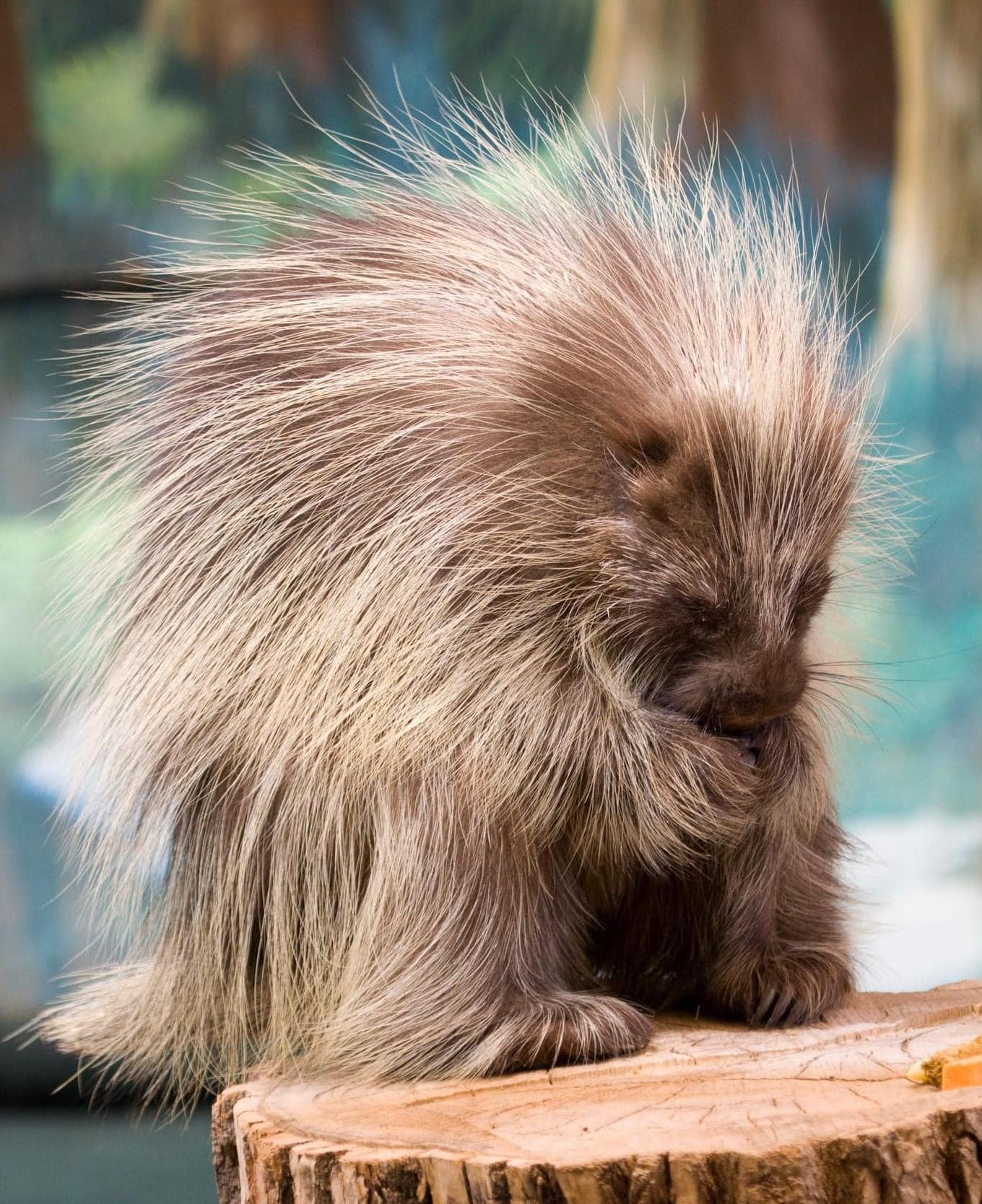
- Details
- By Darren Thompson
DENVER—The death of a much-loved North American porcupine last month at the Denver Zoo had an unexpectedly happy ending.
When the zoo announced the passing of Quill the porcupine on its social media, Lakota artist Danielle SeeWalker reached out with an idea to honor the porcupine and harvest its quills with a community project.
“I have been funding and facilitating a quillwork workshop with an elder in the community, so it was my intent to contact the zoo and honor Quill,” SeeWalker told Native News Online. “I had explained to the zoo that quillwork is a dyeing art, and people in urban settings don’t have access to porcupines that might be on the side of the road like we do back home in the Dakotas.”
SeeWalker is a Hunkpapa Lakota writer, artist, and activist from the Standing Rock Indian Reservation. She previously partnered on a conservation art mural project honoring the American Bison and had an established relationship with the Denver Zoo. In addition, she serves as the co-chair of the Denver American Indian Commission.
“This would be a great learning experience for urban Natives that have never cleaned a porcupine and harvested its quills,” SeeWalker proposed. “In exchange, we will make and donate a piece of quillwork to the Denver Zoo to commemorate Quill’s life.”
Along with donating the finished piece to the zoo, a plaque describing the uniquely Native art of quillwork will hang with it.
“Visitors to the zoo can understand that we, as Native people, treasure our relationship with animals, and we appreciate the gifts they give us,” SeeWalker said.
The Denver Zoo responded quickly and was willing to accommodate SeeWalker’s request. On February 3, 2023, about a dozen people participated in processing Quill’s quills at the Denver Zoo.
Quill had lived at the zoo for 13 years, which was the majority of his life. In January, zoo keepers noticed changes in Quill’s behavior and, after an emergency exam, diagnosed him with advanced liver failure. After discussions between the zoo’s animal care staff and veterinary medicine team, it was determined that Quill had a poor prognosis for recovery and the decision was made to euthanize him.
“Quill was an incredibly popular animal,” said Denver Zoological Foundation Director of Communications Jake Kubie. “He was one of our animal ambassadors and connected with a lot of our guests... We’re so honored to share Quill’s quills with the community.”
Mar Williams, a citizen of the Choctaw Nation of Oklahoma, participated in harvesting Quill’s quills and felt lucky to participate.
“The zoo trip was such a cool opportunity, and I feel lucky that I got to participate in it,” Williams told Native News. “I think it’s important and necessary to engage with death, with our food, art, whatever it may be, because we’ve been so removed from it. I had never touched a porcupine before. I have more respect and a deeper understanding of the art form now, having traveled through the entire process of harvesting, dying, and wrapping the quills.”
Williams expressed appreciation for the way that SeeWalker and other teachers handled the situation. Both Williams and SeeWalker were grateful for Miss Cecilia, who hosted the workshop.
“Danielle and the other teachers have done a great job putting this class on. It feels comfortable like the way we’re meant to learn from elders and community,” Williams said. “I’m Choctaw and don’t have a direct ancestral tie to quillwork, but in the broader Native community sense, it feels really wonderful to be included and connected to this art form.”
More Stories Like This
Two Indigenous Group Exhibits Opening January 9, 2026 at WatermarkWatermark Art Center to Host “Minwaajimowinan — Good Stories” Exhibition
Museums Alaska Awards More Than $200,000 to 12 Cultural Organizations Statewide
Zuni Youth Enrichment Project Takes Top Emerging Artist Apprentices to Phoenix for Artistic Exploration and Cultural Immersion
From Dishwasher to Award-Winning Chef: Laguna Pueblo's Josh Aragon Serves Up Albuquerque's Best Green Chile Stew
Help us defend tribal sovereignty.
At Native News Online, our mission is rooted in telling the stories that strengthen sovereignty and uplift Indigenous voices — not just at year’s end, but every single day.
Because of your generosity last year, we were able to keep our reporters on the ground in tribal communities, at national gatherings and in the halls of Congress — covering the issues that matter most to Indian Country: sovereignty, culture, education, health and economic opportunity.
That support sustained us through a tough year in 2025. Now, as we look to the year ahead, we need your help right now to ensure warrior journalism remains strong — reporting that defends tribal sovereignty, amplifies Native truth, and holds power accountable.
 The stakes couldn't be higher. Your support keeps Native voices heard, Native stories told and Native sovereignty defended.
The stakes couldn't be higher. Your support keeps Native voices heard, Native stories told and Native sovereignty defended.
Stand with Warrior Journalism today.
Levi Rickert (Potawatomi), Editor & Publisher

